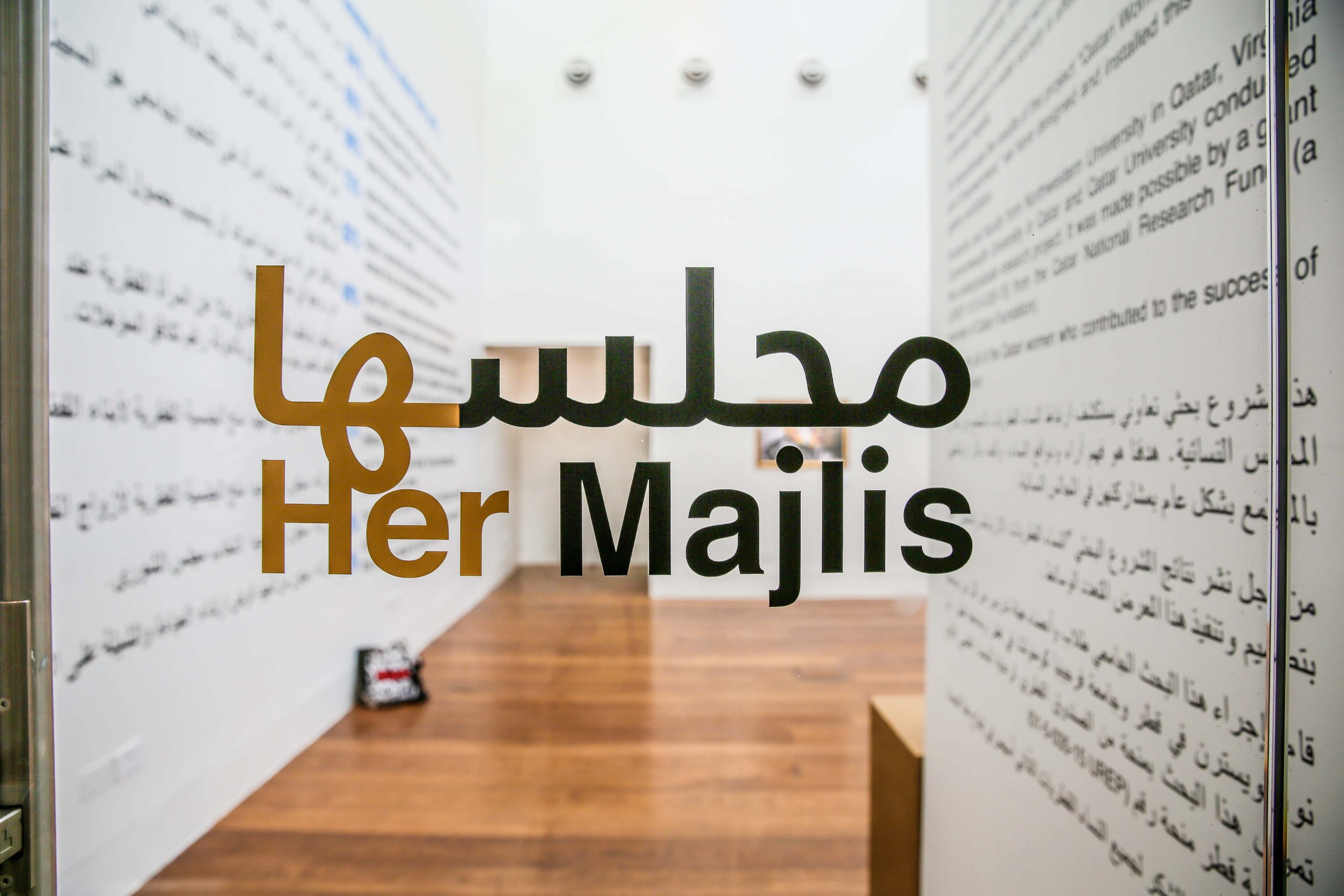
Often perceived as simply a means for women to socialize, the female majalis (literally, “sitting places”) in Qatar actually serve as important forums for political debate, career networking and other topics, according to newly released research.
The findings of that research will be presented by students and professors from various universities tonight at the Hamad Bin Khalifa University Student Center, during the launch of a new exhibition titled “Her Majlis.”

According to those working on the project, the goal is to highlight the state of affairs of women’s empowerment in Qatar by examining the thoughts and opinions voiced in the majlis al-hareem (female majlis), which some 84 percent of local women participate in.
The term majlis al-hareem is used to describe women-only gatherings that take place in Qatari homes or at majalis next to the home where women gather on a weekly or monthly basis to catch up with friends and family over tea, coffee and snacks.
In a statement, Everette E. Dennis, dean and CEO of NU-Q, said:
“This remarkable research challenges misconceptions about female repression or exclusion within society, dispelling negative stereotypes, particularly the role of women portrayed in international media coverage of the Middle East.”

Key findings include:
- Participants largely agreed that Qatar encouraged women to work, but that there was substantial pressure on them to focus on their families in lieu of their careers;
- Women support granting citizenship to children and non-Qatari spouses of Qatari mothers;
- Women were largely in support of enforcing the wearing of the abaya and shayla for Qatari women;
- Women believed that the Shura Council should be elected; and
- Participants saw enrolling in a university as a gateway to becoming an independent person.
Challenges
The Her Majlis or Majlis’ha exhibition is the result of over a year of anthropological research and phone surveys of 1,049 Qatari women.
Those conducting the research said they encountered many challenges, including that of access.

This was tackled by training some student researchers, mostly Qatari women, to conduct ethnographic and observational studies while attending various majlis events hosted by family members and friends.
Speaking to Doha News, Najla Al Khulaifi, a 21-year-old Communications junior at Northwestern University in Qatar and student researcher, said:
“It was weird at first. These were gatherings that we were already a part of, but were now entering as researchers rather than participants. It was fascinating to step outside of it and see that this was something that needed to be studied.
When you see the kind of conversations that take place and the power that comes out of these gatherings, it’s great. We didn’t expect to get the response that we did.”
Beyond gaining access to the majlis, the students also had difficulty in trying to explain the concept of informed consent and ethnographic research to the participants, said Dr. Tanya Kane, an anthropologist and faculty mentor on the project.

“We were asking our Arabic students to go into these familial places that they had grown up in, and all of a sudden, introduce this paper that required IRB, or institutional review board consent,” she said, continuing:
“It was taking a Western academic practice and trying to implement it (here). It didn’t really make sense to a lot of people involved because it was just a foreign concept. Not only that, but these were friends and sisters and aunts (of the students) and we were trying to impose formality into this informal meeting.”
Kane added that the group also faced challenges in representing Qatari women on film during the documentary process, which entailed balancing the need for information with some subjects’ desire for anonymity.
Outside the majlis, Qatar University’s Social and Economic Survey Research Institute (SESRI) carried out phone surveys in which Qatari women were asked about their opinions on a variety of subjects pertaining to religion, politics and social issues.
Presentation
Like most anthropological surveys, the project’s findings are more qualitative than statistics-based, with the month-long exhibition presenting a mix of film, photography and statistics on women’s opinions on society and how the majlis has become an agent for social change and commentary.
The last point is the focus of several student-made documentaries, which are played in a truncated form at the exhibition and offer insight into how Qatari women think and act in society.
According to Kane, the full documentaries have been submitted to film festivals and will screen at the upcoming Middle East Studies Association Film Festival in Denver.
The exhibition also contains a statistics wall, based on SESRI’s phone survey results:

The exhibition’s official opening will be held today from 6 to 10pm at the HBKU Student Center Gallery.
From tomorrow until Oct. 8, it will be open daily from 7am to midnight on most days, except on Fridays, when it will be open from 1pm to midnight.
Thoughts?







